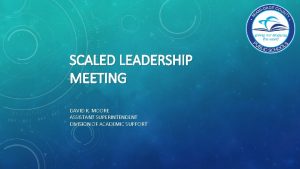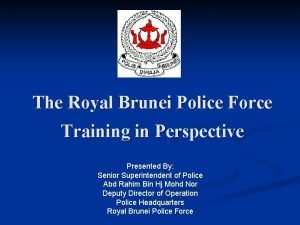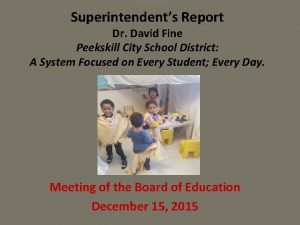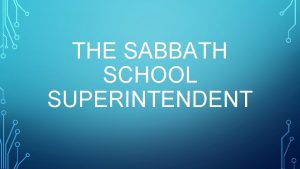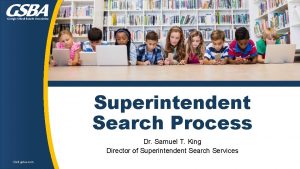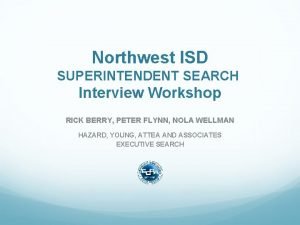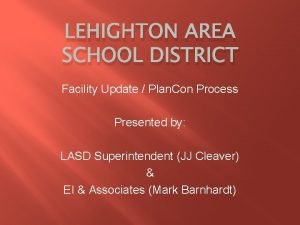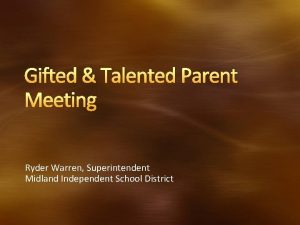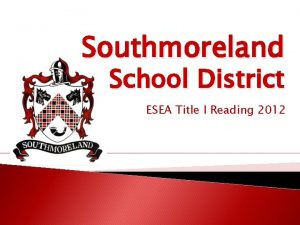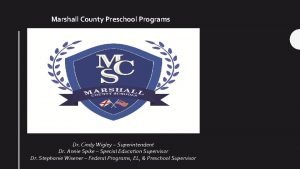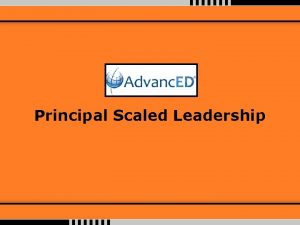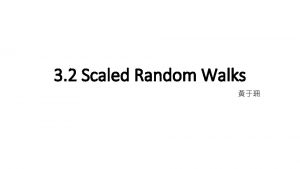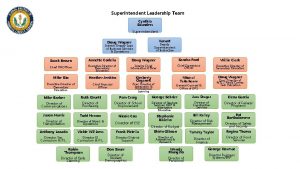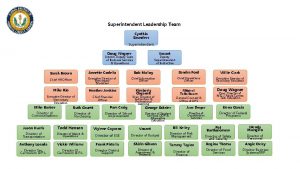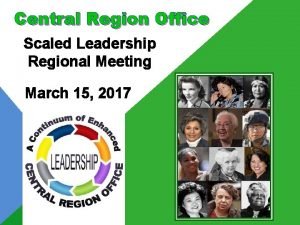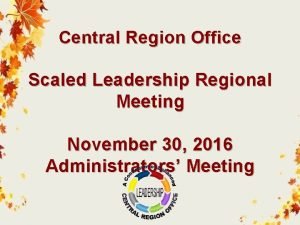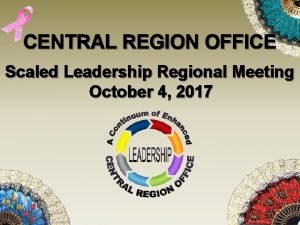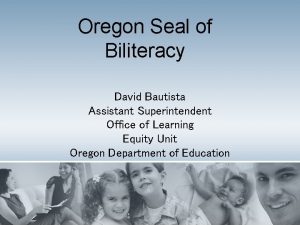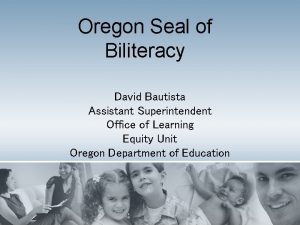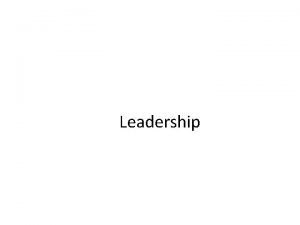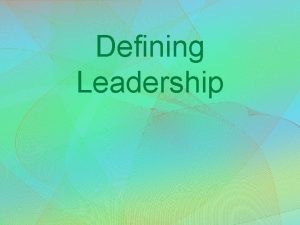SCALED LEADERSHIP MEETING DAVID K MOORE ASSISTANT SUPERINTENDENT














- Slides: 14

SCALED LEADERSHIP MEETING DAVID K. MOORE ASSISTANT SUPERINTENDENT DIVISION OF ACADEMIC SUPPORT

TOPICS • Advanc. ED Accreditation • End-of-year reflection • Synergy • Best Practice Boulevard 2

PREVIOUS PROCESS • The system/school was responsible for reporting and providing documentation that would be used to determine accreditation • Stakeholder Feedback Diagnostic • Student Performance Diagnostic • Assurances • Self-Assessment on each of the five (5) standards: • Standard 1 – Purpose and Direction • Standard 2 – Governance and Leadership • Standard 3 – Teaching and Assessing for Learning • Standard 4 – Resources and Support Systems • Standard 5 – Using Results for Continuous Improvement Both school and system had to determine the level of implementation and provide evidence for each standard 3

Advanc. ED SHIFTS IN EVALUATION • No Stakeholder Feedback • No Student Performance Diagnostic • No Standards • No Evidence Findings for Schools or System 4

NEW PROCESS The visiting team will provide feedback on the school/systems continuous improvement efforts Schools/System Quality Factors (SQF) Schools/System complete self-diagnostic for each of the seven (7) SQFs • Eight to fourteen (8 -14) reflective multiple choice questions for each SQF • Insight Summary • Selected Attachments Assurances 5

SCHOOL/SYSTEM QUALITY FACTORS 1. Clear Direction: The capacity to define and clearly communicate to stakeholders the direction, mission, and goals that the institution is committed to achieving. 2. Healthy Culture: The shared values, beliefs, written and unwritten rules, assumptions and behavior of stakeholders within the school community that shape the school’s social norms and create opportunities for everyone to be successful. 3. High Expectations: An institution’s stated commitment to expectations for all stakeholders, including student learning outcomes, teacher quality, leadership effectiveness, community engagement, and parent involvement. 6

SCHOOL/SYSTEM QUALITY FACTORS 4. Impact of Instruction: The capacity of every teacher to purposefully and intentionally create an environment that empowers all learners to be successful and reach expected levels of achievement, including readiness to transition to the next level of learning or career pathway. 5. Resource Management: The ability of an institution to plan, secure, and allocate its resources (human, material, and fiscal) to meet the needs of every learner. 6. Efficacy of Engagement: The capacity to engage learners and other stakeholders in an effective manner to improve learning outcomes. 7. Implementation Capacity: The ability of an institution to consistently execute actions designed to improve organizational and instructional effectiveness. 7

END-OF-YEAR REFLECTION • Briefing #22812, • Educational Excellence School Advisory Councils (EESAC) 2017 -2018 End-Of-Year Reflection Process 8

END-OF-YEAR REFLECTION • Schedule EESAC meeting to be held after your May faculty meeting • Review Continuous Improvement Worksheet • Key areas of focus: School Culture and Academic Programs • Process must include input from grade level/departments • Leadership Team will complete one comprehensive document • May faculty meeting • Share comprehensive findings • Complete the 2017 -2018 School Improvement Survey 9

SYNERGY • Briefing #22803 • 2018 -2019 Leadership Academy Platform Multi-Session Professional Development Program • Registration is open 10

SYNERGY Elementary, K-8, and High Schools - Who will attend? • (1) Principal • (4) Teacher Leaders • Currently serve in teacher leadership positions and are well respected within their school. • Have responsibilities in the area(s) of the development and implementation of the School Improvement Plan. • Be effective in using data to make informed decisions in order to improve educational outcomes. • Be highly skilled in technology integration in the classroom. 11

SYNERGY Middle School Redesign - Who will attend? • (1) Principal • (4) Teacher Leaders • Currently serve in teacher leadership positions and are well respected within their school. • Have responsibilities in the area(s) of the development and implementation of the School Improvement Plan. • Be effective in using data to make informed decisions in order to improve educational outcomes. • Be highly skilled in technology integration in the classroom. • School Counselor • Innovation Specialist • SCSI Instructor • Teacher Leader or Second AP 12

BEST PRACTICE BOULEVARD • Briefing #22854 • Summer Synergy Best Practice Gallery Walk • Best Practices • School Culture • Professional Development • School Leadership • Instructional Planning 13

14
 David moore superintendent
David moore superintendent Brunei police rank
Brunei police rank David fine superintendent
David fine superintendent Cardinal local schools superintendent
Cardinal local schools superintendent Sabbath school programs for superintendent
Sabbath school programs for superintendent Gsba superintendent search
Gsba superintendent search 09x219
09x219 Northwest isd superintendent search
Northwest isd superintendent search Lehighton area school district
Lehighton area school district Ryder warren superintendent
Ryder warren superintendent Interesting sabbath school topics
Interesting sabbath school topics Sabbath school program ideas
Sabbath school program ideas Thank you note to building superintendent
Thank you note to building superintendent Southmoreland primary center
Southmoreland primary center Cindy wigley
Cindy wigley
